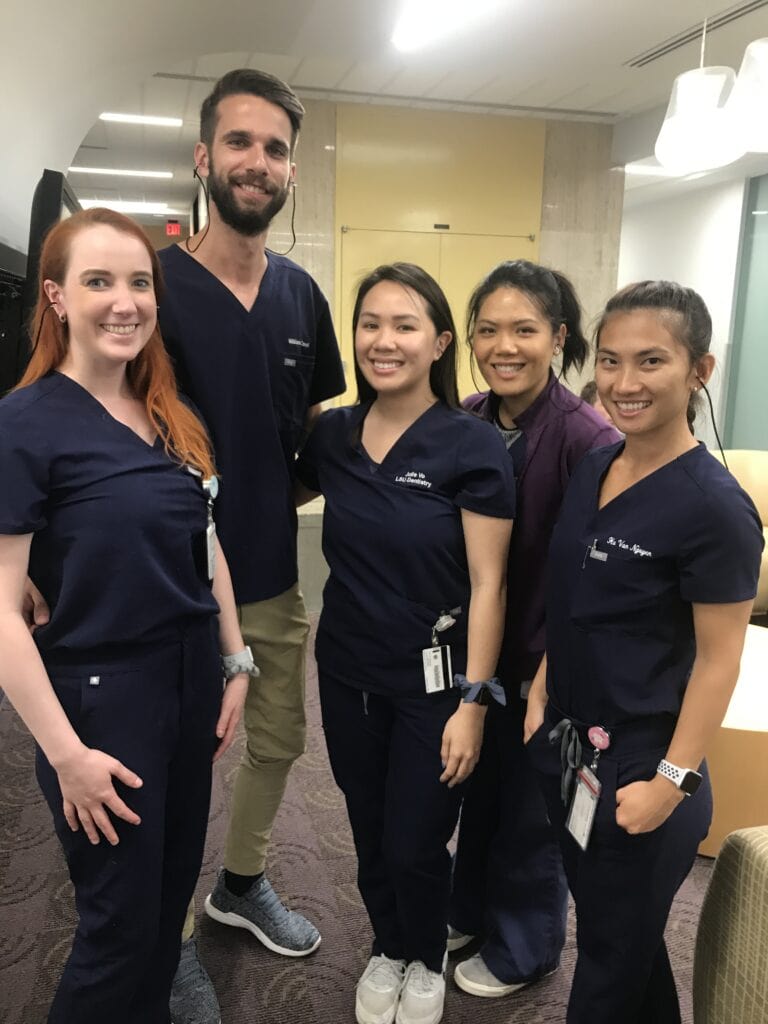AuD students at the University of Pittsburgh manage a hearing conservation program through interprofessional collaboration between faculty and Student Health Service (SHS) staff. University students are at risk for developing noise-induced hearing loss and are good candidates for education in healthy hearing practices. Services for university students allow for increased clinical educational opportunities for AuD students and increased visibility of CSD programs. Here are five tips to consider if you are interested in setting up your own hearing conservation clinic at your university student health service.
1. Establish a Strong Relationship with Healthcare Providers
You may think, “where do I start to develop this kind of clinic?” It is a good idea to begin with an in-service presentation to all providers at the Student Health Service to give them background on what you will be doing. As part of this of this presentation, make sure to emphasize the importance of healthy hearing practices, explain basic concepts of audiology, and give an overview of the audiology services that you will offer students at the clinic. Establishing a strong relationship with these providers will only help you succeed down the line.
2. Find an Excellent Clinical Instructor
An excellent clinical instructor is imperative to running this clinic as a student clinician. You want to talk with your clinical instructor about if this kind of clinic would be possible at your university and set realistic expectations for what you can accomplish. When choosing someone to help you, ensure that they can dedicate time to the clinic and can help you with marketing activities. My clinical instructor ensures that everything runs smoothly and steps in if we need help or have questions. We meet quite frequently to discuss what steps to take to improve the clinic. She also enjoys interprofessional collaboration and has encouraged us to develop relationships with new departments across our campus.
3. Organize Your Equipment
One of the most important parts of setting up your clinic is having the equipment you need. You want to think about what services to offer as part of the clinic. A few key pieces of equipment you might want to include are a standard otoscope, a video otoscope, an OAE machine, and an audiometer. Something you may not have thought to include is a sound level meter! This piece of equipment is great for measuring the output of students’ personal listening devices, so you can make appropriate recommendations regarding healthy hearing practices. We like to have a scale to show patients how safe their listening level is for a certain number of hours. Additionally, you will want to have hearing protection on hand to give out. At our clinic, we have 3M classic earplugs as well as musicians’ earplugs.
4. Develop Marketing Strategies
Marketing the clinic might be the biggest challenge you face in setting it up. We initially targeted our marketing to campus departments whose students were at higher risk for noise-induced hearing loss. The students initially targeted were those in the dental school, music department, and school of health and rehabilitation sciences. Some of our strategies for marketing included announcements on digital signs, flyers distributed across campus, and emails to students. However, we found the most productive marketing activity was signing students up at a healthy hearing information table at the annual university-wide health fair. Additionally, another great way to gain sign-ups is having physicians at the student health clinic refer patients to you.
5. Have a Great Attitude!
At times, you may feel discouraged if student patients do not come to their assigned time slots. Don’t let this obstacle get you down! Even at our own clinic in Pittsburgh, which has been open for over two years now, people do not come. We have tried different strategies to try to overcome this obstacle such as emailing reminders to patients ourselves, instead of having them come from student health. We hoped, by using this strategy, the students wouldn’t immediately delete it since university emails can be generic, automated, and easy to glance over. With the right amount of enthusiasm and perseverance you can make your clinic succeed!
Sarah Pupa is a second-year AuD student at the University of Pittsburgh in Pittsburgh, Pennsylvania. She currently serves as the Humanitarian Chair for her local SAA Chapter. Her main clinical and research interests include increasing the accessibility and visibility of audiology services as well as working with children with Autism Spectrum Disorders.
Related Posts
Wait… Audiologists Can Focus on Hearing Conservation?!
When I was in graduate school earning my AuD, the hearing conservation area was not discussed much. With only one class on the topic of hearing conservation, the concept of preventing hearing loss and hearing disorders was all but lost amidst lectures focused on hearing aids, cochlear implants, vestibular testing, and other methods we, as…
The Dangers of Dentistry: Occupational Hearing Safety
How often do we consider a medical professional to be at risk for occupational hearing loss? Research shows dental professionals are exposed to noise levels as high as 102 dBA, a loudness level far higher than the Occupational Safety and Health Administration (OSHA) sets as their permissible exposure limit (PEL) (Myers et al., 2016). So…
Firearm Suppressors: What Should We Know?
Audiologists have two primary responsibilities: helping people who have some form of hearing loss and working to prevent hearing loss when possible. Let’s focus on the latter obligation. In an industrial workplace exceeding permissible noise exposure limits, both the Occupational Safety and Health Administration (OSHA) and the National Institute for Occupational Safety and Health (NIOSH)…


